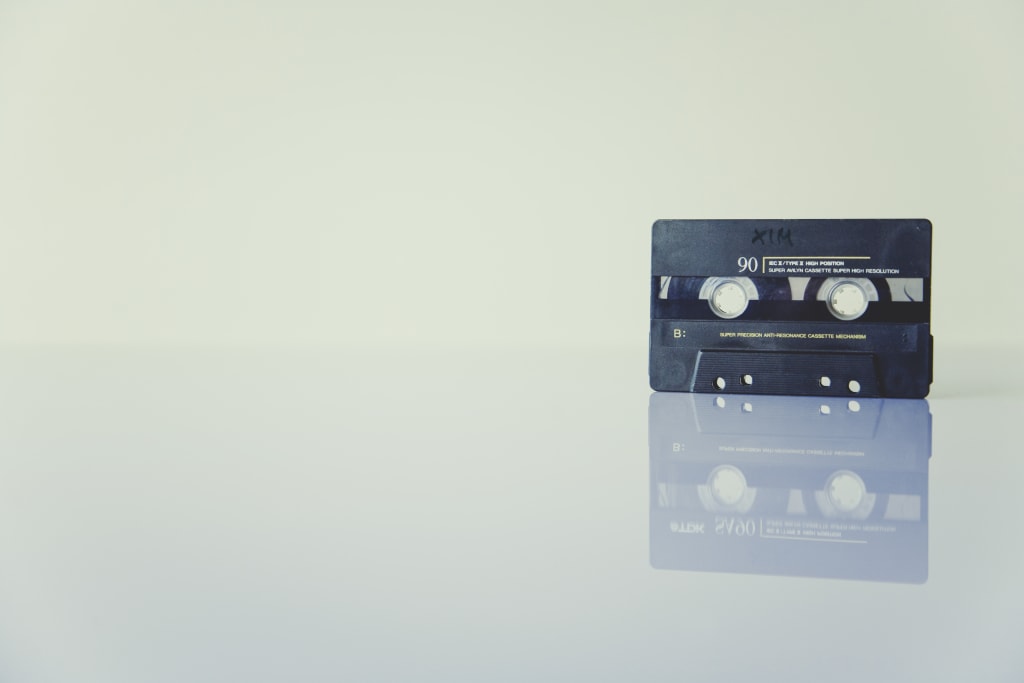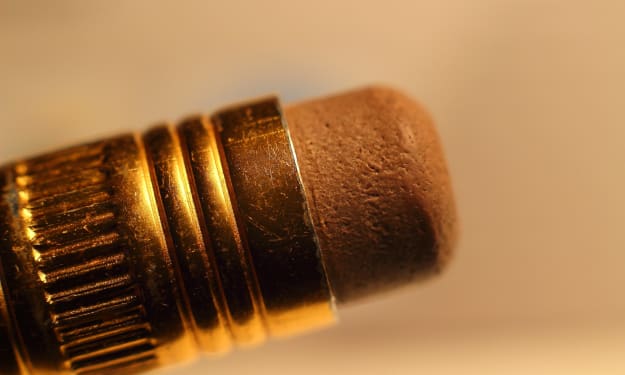The Paradox of '13 Reasons Why'
Spoiler Alert

13 Reasons Why is very good - and very bad - for many many reasons. The most important part of it is that it all depends on perspective. Those who are very aware/sensitive to mental illness in today's world will be harmed at a great extent by the series. But people with no history or education regarding modern mental health may not feel the tension behind the series.
Warning: Spoiler Alert.
13 Reasons Why, a novel by Jay Asher, and adapted by Netflix, has been a topic of controversy lately, for good reason. Many teenagers, parents, psychologists, teachers, school administrators, etc. are concerned about the message that this show conveys. But what is the message? It is very important to make a distinction against what the author and creator intended to say, and how it was received by the consumers. Jerry Smith (ComingSoon.net) had an interview with the author of the book, Jay Asher, following the controversy behind the series. When responding to the "brutal realism" of the book, Asher said the following: "It needs to be uncomfortable to read or watch. If it’s not, and we pull away, it felt like the story would only contribute that problem of not truthfully tackling these things." He also said to De Elizabeth (Teen Vogue) the following, regarding the purpose of the book and series: "I see it as a cautionary tale, and like any cautionary tale, it's not saying, ‘This is what will happen,’ but this stuff does happen, and that's why we have to talk about it. And it shows the dangers of sweeping it under the rug, or not treating it as seriously as we should." It is clear that Jay Asher was very intentional in his purpose to "shock" his readers into their uncomfortable-ness. Furthermore, a writer from the series, Nic Sheff (via Vanity Fair), said the following after the controversy on the series: "When it comes to suicide, I believe the message should be exactly the same. Facing these issues head-on—talking about them, being open about them—will always be our best defense against losing another life. I’m proud to be a part of a television series that is forcing us to have these conversations, because silence really does equal death. We need to keep talking, keep sharing, and keep showing the realities of what teens in our society are dealing with every day. To do anything else would be not only irresponsible, but dangerous." It is very clear that the author of the book, as well as creators of the series, had every intention to shock the audience with portrayal of Hannah's suicide. How it was received by the audience, however, is not what they were hoping. Journalist Zoe Williams (The Guardian) said the following regarding the series: "It’s a revenge fantasy, so it portrays suicide as an act that will achieve something. It’s aimed at a young audience, who are particularly susceptible to contagion, and particularly likely to experience suicidal thoughts. It normalises and legitimises the act...The series depicts suicide as a reasonable response to a set of challenges that anybody might experience, and lays it at the feet of other people. It’s wrong from so many angles that it’s almost as if it were devised as a training manual for how not to use suicide as a plot point."
Another piece of reasoning stated by Elana Sandler, L.C.S.W., M.P.H. (Psychology Today) said many things in an article on why 13 Reasons Why was wrongfully portraying a message. But before beginning, the following contextual background should be stated: Dr. Sandler has NOT watched or read the story, as I have watched the series and multiple interviews with Jay Asher and show producers. Dr. Sandler, an advocate for suicide awareness and prevention, lost her own father to suicide. I have lost my sister to suicide, and I myself deal with clinical depression, generalized anxiety disorder, and have suffered from suicidal thoughts and an attempt.
To start, she stated the following: 13 Reasons Why doesn’t show what people can do to help prevent a suicide death. There isn’t any one thing, but there are a lot of things that can help provide support for people with suicide risk." Dr. Sandler is correct in stating that there is not a singular thing that can be done to prevent suicide, but many things. In the context of the show is where she is mistaken. Hannah makes it very known to her listeners, especially Mr. Porter, that there were many things that they could have done to help her - yet they did not.
Next, she says, "There are ways to tell a story about suicide that are compassionate and do not trigger high levels of emotional distress." I will have to personally disagree with her on this point for two reasons. At the base level, I will say that nobody is making those who have suffered from suicidal thoughts watch this show. There is warning before any potentially traumatizing episodes that the following depicts sensitive material. They could have decided to turn away and stop watching. To my second point, going back to Jay Asher, people do need to be uncomfortable with seeing it in order for it to have a true impact on them. It is, unfortunately, how we as humans work. We need to be shocked, scared, and hurt to understand and learn sometimes.
Next, she says: "Inspiring hope, by showing how adults can be supportive of teens facing the kinds of experiences Hannah faced in her school - like bullying and sexual assault - is a more effective way to prevent suicide." She is correct. There are many wonderful sources for help regarding bullying and sexual assault. And Hannah Baker, specifically in Episode 13 with Mr. Porter, did reach out to an adult. And this adult turned the blame on her and told her to "get over it and move on." This is something Jay Asher said he found happening to a lot of teenagers in school when researching the book. I even personally know people who have gone through that exact situation and it played out the same as Mr. Porter to Hannah Baker.
Finally, and perhaps most importantly, she states the following chilling quote: "The only person truly responsible for Hannah’s death is Hannah herself." As a brother to a girl that killed herself, a young adult finishing high school, an almost-victim of suicide, a psychology major, and a clinically diagnosed depressed person, this is horrible to hear from a psychologist. The last thing Hannah Baker, me, or anyone, for that matter, would want to hear from a psychologist after a suicide attempt, is that the only person that they can truly blame is themselves. Blame should be the least of worries after suicide. Blame does not matter, especially if the attempt is successful. The fact that this psychologist is blaming Hannah for her own suicide just shows more reason that I believe this show should exist. In order to understand that if a psychologist can place blame for suicide, then anybody can.
So Jay Asher and the creators of the series had matching ideas when it came to the dark realism of the series. There is no discrepancy there. The audience, however, received that the show, regardless of intention, should NOT portray suicide, sexual assault, etc. There is not one true answer. It is up for debate. The show, however, does glamorize suicide heavily. The most obvious sign of this, in my opinion, is the popularization of the term "welcome to your tape." Hannah says it every episode. And since then, it took off as a meme on social media. One person said a minor inconvenience to another, and that person would say "welcome to your tape." I see it on Twitter and hear it in school. Along with that, the dramatic "tapes" that Hannah has as a sort of guilt being displayed onto the people receiving them. In a realistic nature, nobody that is planning to commit suicide would do something like that. It is possible, and maybe the show is opening up the potential for it, but it simply isn't a realistic thing. Even suicide notes only happen in one-fourth of deaths, according to the U.S. National Library of Medicine. Nonetheless, the show does make an issue that was already heavily stigmatized and underestimated, especially in high schools, a lot worse.
Given all of this data, I am drawn to the conclusion that the new Netflix drama, 13 Reasons Why, is more helpful than it is hurtful. While it does glamorize suicide and increase an already stigmatized issue in schools, it brings heavily to light issues that happen in high schools. Whether schools, parents, teens, or psychologists like it or not, the show succeeded in doing what Jay Asher's original intention was: to make people talk about it. It is the most tweeted about show of 2017 with 3.5 million tweets just in its first WEEK of airing. School districts are sending out voicemail's to parents about it - mine included. Mental health specialists and teachers are talking about it - whether it's harmful or helpful. Jay Asher wanted people to feel the utter pain and uncomfortable disgust that Hannah Baker felt within herself. And through his bestselling novel, and the hit Netflix series, he did so with astounding success. Agree with the message and method of delivery that the show takes, you must agree that the show did get people talking.
Sources
Smith, Jerry. “Interview: Author Jay Asher Talks 13 Reasons Why.” ComingSoon.net, 18 Apr. 2017, www.comingsoon.net/tv/features/839149-interview-author-jay-asher-talks-13-reasons-why. Accessed 17 May 2017.
Elizabeth, De. “The Author Behind Selena Gomez's New Netflix Show Gets Real About Working With the Star.” Teen Vogue, TeenVogue.com, 17 Mar. 2017, www.teenvogue.com/story/13-reasons-why-author-jay-asher-selena-gomez-netflix-adaptation. Accessed 17 May 2017.
Sheff, Nic. “13 Reasons Why Writer: Why We Didn't Shy Away from Hannah's Suicide.” HWD, Vanity Fair, 19 Apr. 2017, www.vanityfair.com/hollywood/2017/04/13-reasons-why-suicide-controversy-nic-sheff-writer. Accessed 17 May 2017.
Williams, Zoe. “Netflix's 13 Reasons Why and the trouble with dramatising suicide.” The Guardian, Guardian News and Media, 26 Apr. 2017, www.theguardian.com/tv-and-radio/2017/apr/26/netflix-13-reasons-why-suicide. Accessed 17 May 2017.
Sandler, Elana Premack. “13 Reasons Why "13 Reasons Why" Isn't Getting It Right.” Psychology Today, Sussex Publishers, 24 Apr. 2017, www.psychologytoday.com/blog/promoting-hope-preventing-suicide/201704/13-reasons-why-13-reasons-why-isn-t-getting-it-right. Accessed 17 May 2017.
Shioiri, T, et al. “Incidence of note-Leaving remains constant despite increasing suicide rates.” Psychiatry and clinical neurosciences., U.S. National Library of Medicine, Apr. 2005, www.ncbi.nlm.nih.gov/pubmed/15823174. Accessed 17 May 2017.






Comments
There are no comments for this story
Be the first to respond and start the conversation.